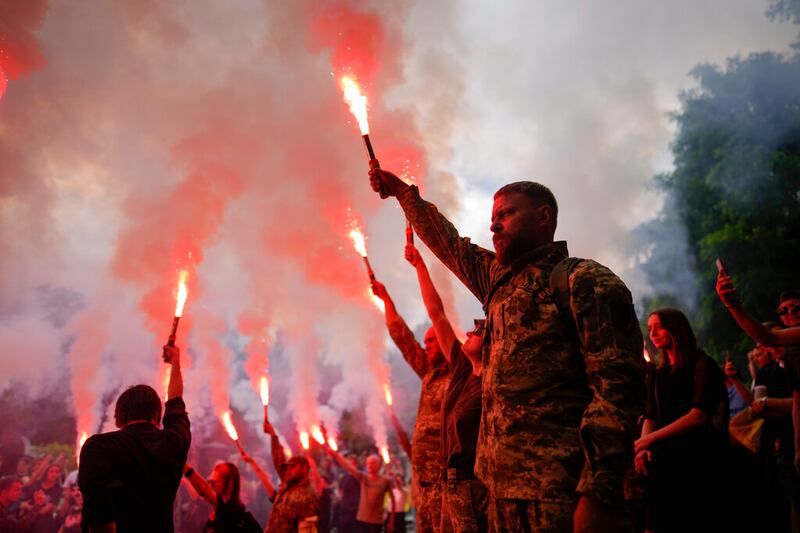It has been three months, four weeks and one day since Russia began its invasion of Ukraine.
Last week, the on-the-ground battle continued in eastern Ukraine, namely Luhansk, while authorities investigated the mass graves in Bucha. The war has also exacerbated worries of food insecurities for many nations.
War persists in many of the same parts of Ukraine, while a northeastern region is also experiencing intensive shelling. Moscow deemed the Kaliningrad cargo transit ban “openly hostile.” Meanwhile, Washington has struggled to bring back detained Americans.
On the battleground
Russia advances on fighting for “complete liberation” of the Donbas, which refers to the eastern regions of Donetsk and Luhansk, the home of many Russian-backed separatists, according to BBC.
As I reported last week, Moscow is still targeting Severodonetsk, one of the largest cities in the region that has strategic advantages, by occupying areas around the city. According to The Guardian, Russian forces captured Toshkivka, a village 15 miles from the major city, on Monday.
The head of the region’s military, Serhiy Hayday, said that “most of the city is under control (of the Russian army),” while the industrial zone and the Azot Plant are still under the Ukrainians’ control, per CNN.
In an address, President Volodymyr Zelenskyy noted that the invaders are also focusing their attention on Kharkiv, an essential industrial city in northeastern Ukraine.
“They want to push our shortage of fuel to a critical level,” said the president, per Yahoo News. “Obviously, we’re going to respond to this.”
Americans in Russia
Moscow has forced Washington to jump through hoops to free the detained Americans.
“Oh, well, we moved detainee X last week. He’s on the other side of Moscow and you’re gonna need a different form, in triplicate, but that but the office that issues it is closed until next Thursday. But if you come after five on Friday, then maybe we’ll take care of you, but only bring blue pens,” a senior State Department official said, describing the process of working with Russia, per CNN.
The citizens in question are soldiers — Alex Drueke, 39, and Andy Tai Ngoc Huynh, 27 — who went missing in Ukraine.
A Kremlin spokesperson said that the two men had shelled and fired at Russian troops and should be “held responsible for the crimes they committed,” adding that they were not protected by the Geneva Conventions as war prisoners, according to The New York Times.
On Tuesday, the State Department confirmed the death of an American in Ukraine, the second since the conflict began.
The department said that it is in touch with his family to provide assistance and that “out of respect to the family during this difficult time, we have nothing further,” according to The Associated Press.
Russia spells trouble for Lithuania over Kaliningrad
The European Union’s sanctions on Russia include a ban on the country’s export of goods like coal, metals, construction materials and technology. According to The Guardian, half of all exports previously traveled though Lithuania by rail.
The Kremlin said on Monday that Lithuania will face “serious” consequences if it doesn’t allow some goods to reach Kaliningrad, per BBC.
“Their consequences will have a serious negative impact on the population of Lithuania,” said Nikolai Patrushev, secretary of the Russian Security Council.
Acting as the furthest point in Moscow’s reach, Kaliningrad was a part of Germany until it was handed over to the Soviet Union after World War II. This is where the Russian Baltic Sea Fleet is headquartered.
The foreign policy advisor to Lithuanian Parliament speaker Rolandas Kačinskas reiterated Lithunia’s stance on the matter via Twitter.
“The transit of passengers and EU non-sanctioned goods to the Kaliningrad region through the territory of Lithuania continues uninterrupted,” said Kačinskas, adding that the country “hasn’t imposed any unilateral, individual, or additional restrictions on the transit & is acting fully in accordance with EU law.”


